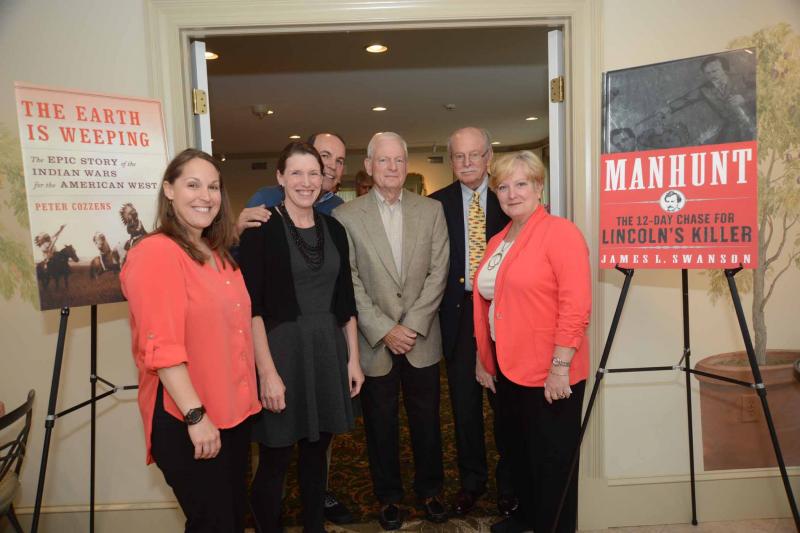It’s a great time to love history reading
People have always been interested in history, especially since the future is so uncertain. This weekend, the History Book Festival in Lewes is filling the town with authors and readers. Each is vital to the other.
The festival is the first of its kind in the nation, and the lineup coming to town for the festival’s second year shows tremendous growth and energy building on the successful inaugural event in 2017.
Three days of discussions, book signings and presentations are tapping into the continuing growth of reading by the American people and the community building that takes place in book clubs focused around fiction and nonfiction works. Check it all out at historybookfestival.org, and stop in at Biblion Books on Second Street or Lewes Public Library for more information and to feel some of the buzz.
Susan Kehoe, managing partner at Browseabout Books in Rehoboth Beach, sent me a note the other day about a related initiative underway there. “We are partnering with the Rehoboth Beach Public Library to present a city-wide book club,” she said.
“We have picked a book, which we will announce in December. Programming would be March-May and will involve all of our arts community partners. We are hoping to create about six larger events that would occur over those three months. We chose a book that we felt had local ties and also would lend itself to great discussions.”
I’ll be looking forward to hearing about the book they have chosen and the programs being developed around it with the other arts organizations in the Rehoboth community.
In past year, three histories
In the past year, coincidentally, I have read three histories, all of which have been tremendously engaging. The first was Ron Chernow’s “Grant,” about the Civil War general and president. The book was enlightening, to say the least. It was amazing to learn about what an enduring fighter Grant was for civil rights and his many other accomplishments. Chernow is a good writer and fastidious researcher. Grant is a long but easy read, which reminds me of something Ernest Hemingway once said: “Easy writing makes for hard reading.”
The second was Mark Kurlansky’s “The Big Oyster,” about New York City’s long love affair with oysters. Kurlansky has written about salt and cod. “The Big Oyster” is in the same vein. Cultural, historical, environmental and always with an ear for the entertaining, Kurlansky’s book is another easy and illuminating read - and much shorter than Chernow’s “Grant.”
Last but not least is Sally Mott Freeman’s “Jersey Brothers.” I wrote about this book earlier this year when I first started my reading. I since finished it and found it a fine, well-crafted read all the way through.
Freeman looks at the U.S. Navy’s role in the South Pacific during World War II, particularly through the eyes of her father and two brothers - all Navy men in that theater of war. One brother is captured along with dozens of shipmates and becomes a prisoner of the Japanese.
The other two brothers perform a variety of roles from confidant of President Franklin Delano Roosevelt and war room strategist in the White House, to artillery gunner on a storied naval destroyer. In the midst of their military efforts is the family-unifying back story of the efforts to find, learn about and work for the release of their captured brother. Through interviews and correspondence - official and intra-family - we also learn about the extreme hardships endured by the captured brother and his compatriots as prisoners of war.
Freeman adds another dimension to “Jersey Brothers” that opens a window on the deeply personal desperation felt by her grandmother as she worries about her three soldier sons at war - and particularly for her youngest held as a prisoner.
While Freeman’s book captures Navy and national pride in some of the notable sea battles of the South Pacific, and inter-service power struggles between Army and Navy, the author’s perspective of deep personal anxiety dispels any romantic notions of war.
Freeman and her husband, John, have local connections that testify to Sally’s family maritime roots. They brought the remains of the Mispillion Lighthouse to Lewes several years ago after it had been severely damaged, first by neglect and then by fire. On a lot in Shipcarpenter Square in the heart of the town’s historic district, they restored the lighthouse and incorporated it into a home they use when not in their Washington, D.C. environs.
For those who take delight in learning more about this world we inhabit by exploring its history, it’s a great time to be a reader.













































